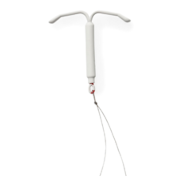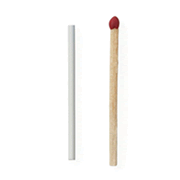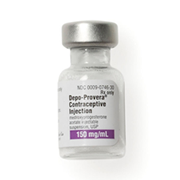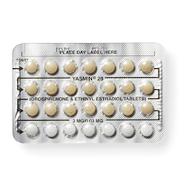Period pain? Birth control can help!
Hormonal birth control is one of the best ways to manage painful periods.

Having a painful period can mess up your day, or week—or weeks! Every woman’s period is different and the same woman’s periods are often different over time. So how do you know if the pain you have with your period is normal? And what can you do to make your periods less painful?
My periods are really painful. Am I normal?
It’s normal for women to have some cramping, bloating, nausea, or diarrhea before their period starts each month. These symptoms can continue for a few days after the period starts, and they can be annoying—but they shouldn’t interfere with going to school or work, or with otherwise living life.
Here’s what’s not normal:
- Moderate to severe cramps or lower belly pain with every period.
- Periods so bad that they interfere with work, school, or life in general.
So what’s the problem, exactly?
Periods like this may be dysmenorrhea—a fancy medical term for pain with menstruation. There are several possible causes of severe period pain, some of which have special treatment options.
- The cells from the lining of the uterus may be growing into the muscles of the uterus (adenomyosis) or on other organs in the body (endometriosis).
- The muscle of the uterus may be growing fibroids.
- The uterus may be releasing too much of a substance called prostaglandins, causing its muscles to contract irregularly and leading to big-time pain.
The good news is that you don’t have to put up with this pain! If you’re having abnormally bad periods, talk to your health care provider about what might be causing the pain and how to treat it. There are a few things you can do to make your periods less painful, shorter, or go away altogether.
And what are the solutions?
1. Make your periods less painful. You can buy pain killers like ibuprofen (Advil or Motrin) at the drug store. Start taking them right when you first start feeling symptoms, or if your cycle is really regular, take them just before you expect your period.
2. Make your periods lighter. All types of hormonal birth control are even better at reducing pain than over-the-counter meds. The hormonal IUD, the implant, the shot, the pill, the patch, and the ring will all make periods lighter. This is because these methods of birth control make the lining of the uterus thinner. There’s less tissue in the uterus to shed, so periods are lighter. One special note on the implant and the shot: for some women, these methods cause more days of spotting or bleeding, but periods become lighter and less painful overall.
3. Have fewer periods. The ultimate solution may be to have as few periods as possible. Several methods of birth control can make periods go away for months or even years at a time:
- One of the best ways to treat painful periods is to get the hormonal IUD Mirena. This IUD makes periods lighter and shorter for nearly all women, and many stop getting periods even after one year of use. The chance that you’ll stop getting your period increases the longer you use it. Periods should be light or nonexistent as long as you use a Mirena—up to 8 years. (Of course you don’t have to use it for all 8 years—you can have it removed anytime you want to. Your ability to get pregnant returns right after it’s removed.)
- You can use the pill or the ring continuously. Some brands of the pill are packaged for 3 months of continuous use (e.g. Seasonale or Seasonique). But you don’t need a fancy brand: with a monophasic pill, instead of having a few days of placebo pills when you’d normally get your period, you can just start a new pack of active pills. Here are more details on how to use the pill this way. For the ring, instead of having the ring out for a few days when you’d normally get your period, you can just change your ring once a month and skip the week without one. After 3-6 months, you may have break-through bleeding.
- You can try the shot, which causes about half of women to stop getting periods after a year of use.
When hormonal birth control stops your period, it’s because the lining of the uterus gets so thin that there’s nothing to shed. It’s totally safe to skip periods this way, so if you suffer from serious period pain, talk to your provider about what you can do about it.
How do you feel about this article?

Heat up your weekends with our best sex tips and so much more.





